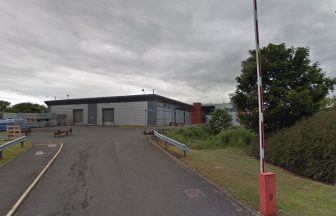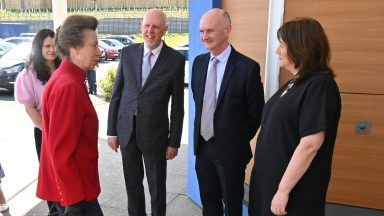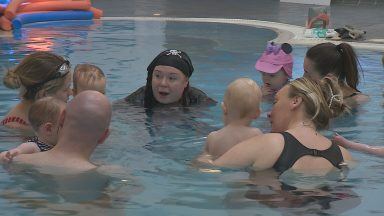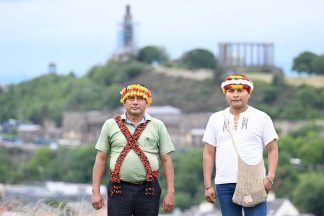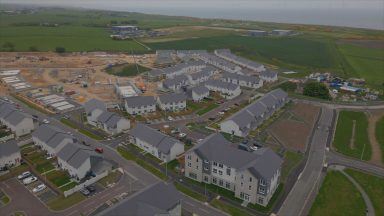More than 1,200 people in Scotland received support in the first year of a charity’s programme to end destitution caused by UK immigration policy, figures show.
A new report from Fair Way Scotland shows 1,205 people sought help from the programme, designed to end destitution and homelessness as a result of the legislation, in its first year.
The housing, advice and cash package targets people locked out of essential support because of their immigration status – including asylum seekers and European nationals.
Six people were accommodated by the partnership in Glasgow with linked £50 weekly cash payments because they were excluded from all forms of public support.
Some 60 people in Glasgow, 291 in Edinburgh and 21 in Aberdeen accessed support and advice.
Fair Way Scotland said 1,205 people excluded from state support accessed its services in Glasgow, Edinburgh and Aberdeen, including 730 who received casework support in an effort to regularise their immigration status and protect them from being made homeless or forced on to the streets.
But chiefs said efforts to house others – including European nationals without settled status after Brexit – will require additional independent funding available to finance accommodation, amid intense pressures on housing supply.

The report from Heriot-Watt University’s I-SPHERE institute, funded by the Joseph Rowntree Foundation, calls on the UK Government to overhaul immigration policies and “commit to ending destitution by design.”
It also urges the Scottish Government to set out “concrete” plans to mitigate effects of the policies by delivering on their commitment to helping people with No Recourse to Public Funds (NRPF) or Restricted Eligibility (RE), as set out in the Green-SNP cooperation agreement.
The report also highlighted the key role Registered Social Landlords can play in providing social housing to the partnership – citing the example of Maryhill Housing Association in Glasgow, which has already pledged ten flats, some of which are already occupied.
Fair Way Scotland works to provide people with safe housing in community-based properties, with linked cash payments, access to legal advice and other support including a helpline. Preventing destitution helps people to regularise their immigration status and access work or statutory support where permitted.
The report’s author Beth Watts-Cobbe, Senior Research Fellow at I-SPHERE, said: “Our report shows the distance travelled in the first year of the partnership despite political and economic uncertainty, tight council budgets and high housing demand, and the priorities ahead.
“Intolerance of rough sleeping and destitution is a marker of a civilised society. The UK and Scottish Governments will rightly be judged on taking the harms experienced by those with No Recourse to Public Funds or welfare support seriously.”
Deborah Hay, Senior Policy Advisor (Scotland) at the Joseph Rowntree Foundation, said: “Destitution should never be a tool of public policy. Yet, the UK Government is doing just that by locking people out of essential support, inflicting needless misery on thousands of people who want to make Scotland their home.
“Fair Way partners have demonstrated that ending destitution in Scotland is possible, despite the challenges. Scaling up Fair Way is now critical given rising demand for help, but mitigation programmes like this shouldn’t be necessary. The UK Government must commit to an urgent change of course and end destitution by design.”
It follows a Home Office decision to shorten the eviction process for people seeking asylum in dispersal accommodation, raising concerns among campaigners that lock-change evictions previously used by Serco could resume.
Serco’s policy between 2012 and 2019 meant locks on people’s homes could be changed without notice if they were no longer eligible for asylum support, effectively forcing them into immediate street homelessness.
Sabir Zazai, CEO of Scottish Refugee Council, said: “Safe housing and legal advice is more important than ever as the UK Government continues to pursue hostile policies and deny people their basic human rights.
“As we see a deeply concerning rise in people seeking protection being evicted from their homes, this report highlights some of the proactive ways people at risk of homelessness can be supported.”
Publication of the evaluation comes after a reported sharp rise in eviction cases going through Glasgow Sheriff Court brought by Home Office accommodation provider Mears Housing.
A Scottish Government spokesperson said: “Nobody should be forced into destitution or made homeless in our communities.
“Scottish Ministers have repeatedly raised the impact that the UK Government’s No Recourse to Public Funds (NAP) policy is having on people in Scotland and have called for improvements to ensure people have access to housing and essential services they need.
“We provide an annual grant to Homeless Network Scotland to facilitate Fair Way Scotland. The Scottish Government’s funding supports the advice and advocacy elements of the project.
“The Scottish Government and COSLA developed the Ending Destitution Together strategy to prevent and mitigate destitution arising because of reserved immigration legislation and rules.
“We will continue to engage with local authorities and the third sector as we work to do what we can within devolved powers to support people at risk of or experiencing homelessness and destitution due to NRPF.”
The UK Government has been contacted for comment.
Follow STV News on WhatsApp
Scan the QR code on your mobile device for all the latest news from around the country


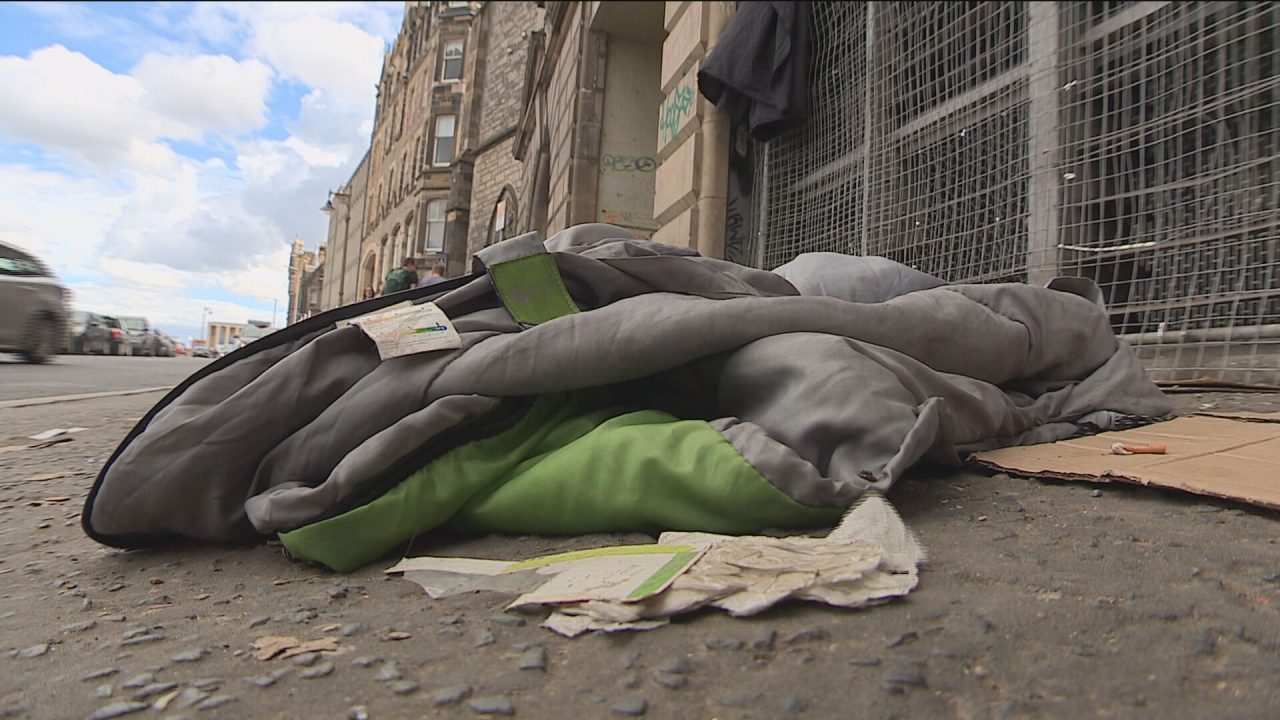 STV News
STV News